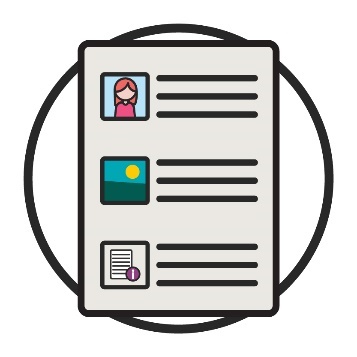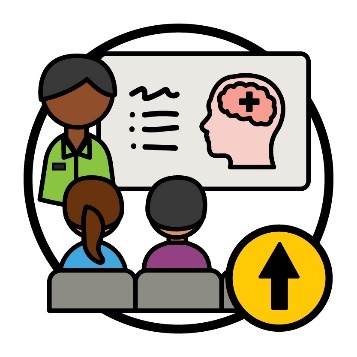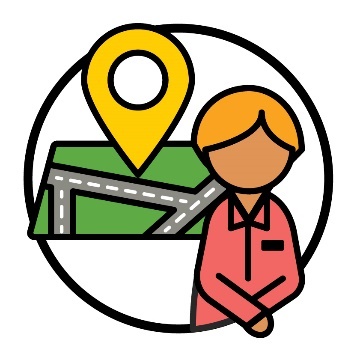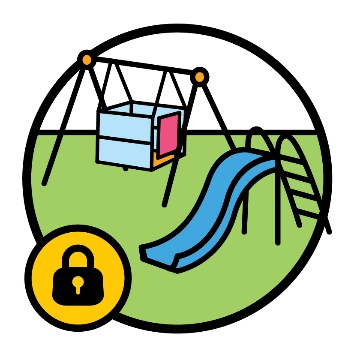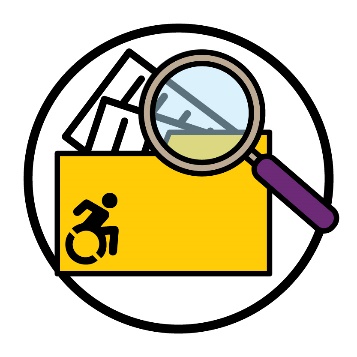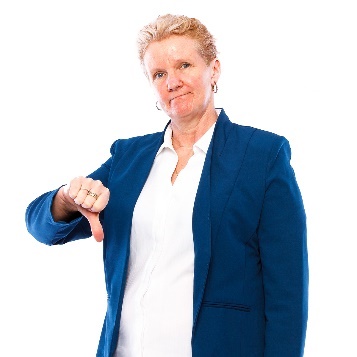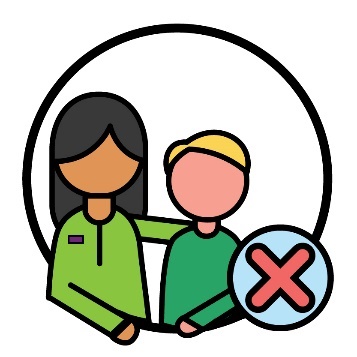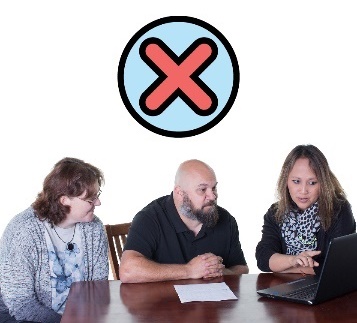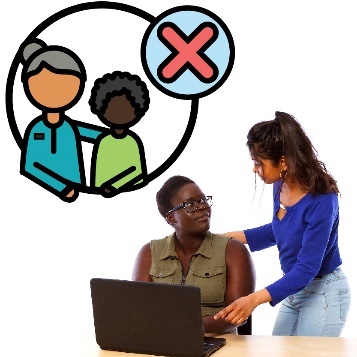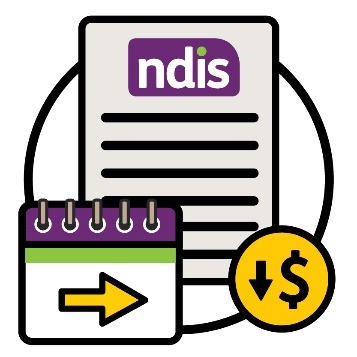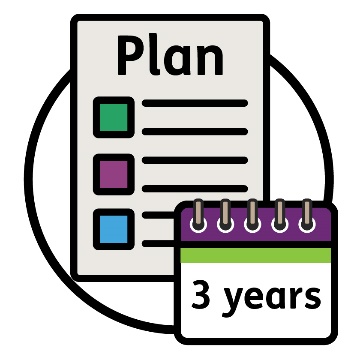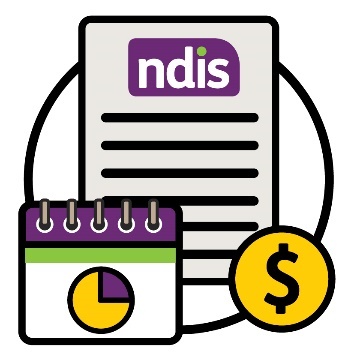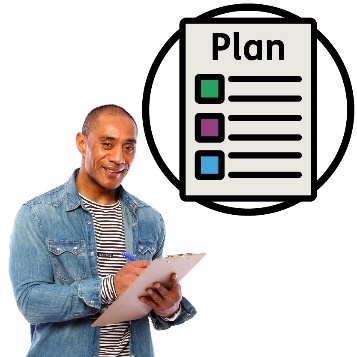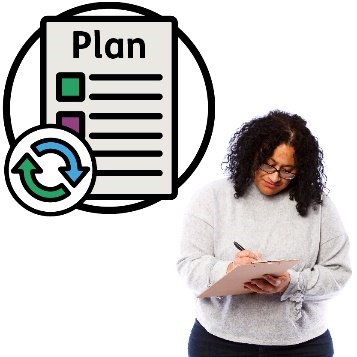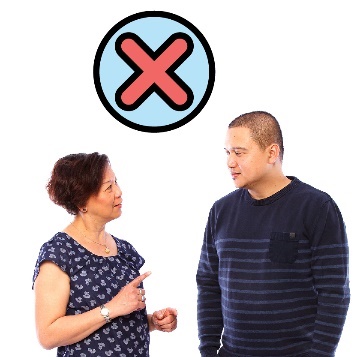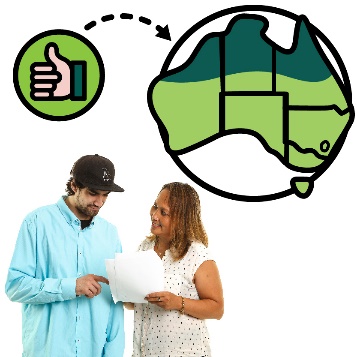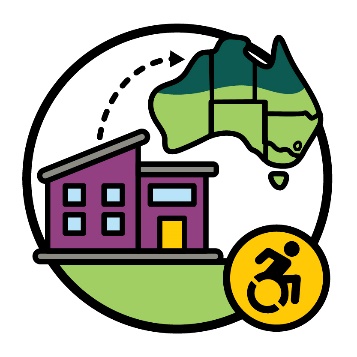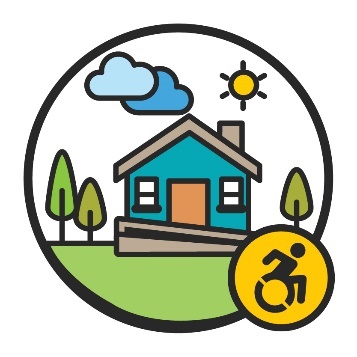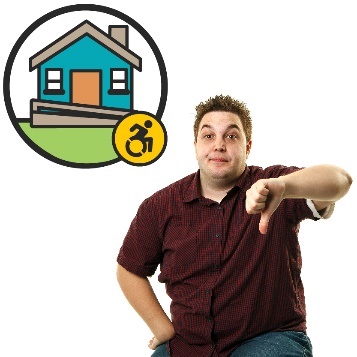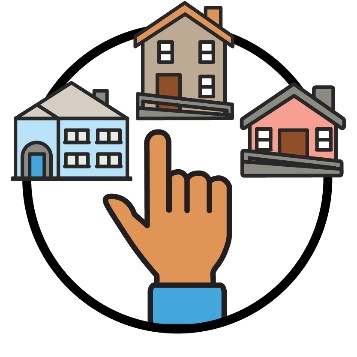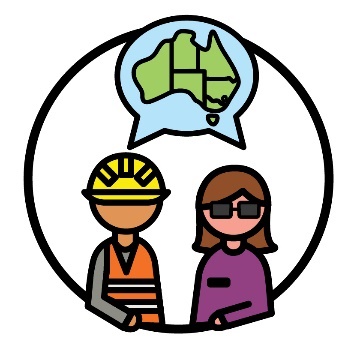What did our Council Members share?
| Our Council Members connect with the community to find out about issues that affect them. | |
| Our Council Members shared these issues with the NDIA. | |
The community
| Council Members shared that the community is happy with our Work Plan for 2022 to 2023. Our Work Plan explains the work we will do each year. |
| Council members explained that people don’t know how the NDIS Commission supports participants. Participants are people with disability who take part in the NDIS. |
| Some people also think the NDIS Commission might give them less support. But this is not true. |
| Council Members talked about the NDIS Workforce Capability Framework. The framework explains how people must behave when they support NDIS participants. |
| Council Members explained how the framework can help participants know what to expect from their services and supports. |
How the NDIA works
| Council Members explained that the NDIA has a chance to stop people doing the wrong thing with funding. |
| Some people are more at risk than others. |
This includes: | |
|
|
|
|
| Council Members think the NDIA should hire more people with disability. |
| This includes people with intellectual disability. An intellectual disability can affect how you:
|
| The NDIA has a chance to show other organisations they can do this too. |
| Council Members also explained that the NDIA is starting a First Nations Advisory Group. They will give advice to the NDIA Board about issues that affect First Nations peoples. |
| It is important that we work together with the First Nations Advisory Group. |
| Council Members also shared that the community want the NDIA to share how many participants have died from COVID-19. |
NDIS supports
| Council Members explained that people with disability need support to find and keep a job at different times in their life. Not just when they are young. |
| We will talk about this when we give our advice to the NDIA about ‘Participants who are ageing’. |
| Organisations who hire people with disability need to be more inclusive. When something is inclusive, everyone feels:
|
This includes: | |
|
|
|
|
They should share more information in: | |
|
|
|
|
| Council Members also explained that some people who support participants need more training to support people with disability. |
| Support workers need more training to meet the needs of people with disability who need support with their mental health. |
| Local area coordinators (LACs) also need more training to support people with disability. An LAC is someone who helps people with disability:
|
NDIS supports for children
| Council Members explained that some local councils lock accessible playgrounds. |
| When something is accessible, it is easy to:
|
| They lock playgrounds because they worry people will damage them. |
| Local councils should understand it can be hard for parents of children with disability to get to an accessible playground. And when the playground is locked, they can’t use it. |
| Council Members explained that the support the NDIS provides changes when children are 6 years old. |
| But the NDIA does this in different ways. Council Members think there should be one way to do this. |
| Sometimes children need evidence of their disability to take part in the NDIS. Evidence is proof that something is true. Getting evidence can cost a lot of money. |
| Council Members think this is not fair. And it costs a lot of money because there isn’t another way to get the evidence families need. |
| Council Members worry about how the NDIS stops providing support to children. |
| Sometimes the NDIA doesn’t tell families that it will happen. |
| And they don’t help them find other supports. |
NDIS plans
| Council Members worry about participants who might get less funding for their plan in the future. |
| Council Members explained that some participants get a plan for 3 years. |
| But their funding is for supports that only last part of that time. |
| Some participants manage their own plan. |
| But sometimes the NDIA changes their plan so someone else manages it. |
| Sometimes the NDIA does not tell participants that:
|
| Council Members shared that people are happy with how the NDIA communicates with the community about planning in the north of Australia. |
Home and living
| Council Members explained that a lot of people want to build Specialist Disability Accommodation (SDA) in the north of Australia. |
| SDA is accessible housing for people with disability. |
But the SDA they want to build does not: | |
|
|
|
|
| Builders should talk to the disability community about where to build SDA. |
What did our Council Members share?
| Our Council Members connect with the community to find out about issues that affect them. | |
| Our Council Members shared these issues with the NDIA. | |
The community
| Council Members shared that the community is happy with our Work Plan for 2022 to 2023. Our Work Plan explains the work we will do each year. |
| Council members explained that people don’t know how the NDIS Commission supports participants. Participants are people with disability who take part in the NDIS. |
| Some people also think the NDIS Commission might give them less support. But this is not true. |
| Council Members talked about the NDIS Workforce Capability Framework. The framework explains how people must behave when they support NDIS participants. |
| Council Members explained how the framework can help participants know what to expect from their services and supports. |
How the NDIA works
| Council Members explained that the NDIA has a chance to stop people doing the wrong thing with funding. |
| Some people are more at risk than others. |
This includes: | |
|
|
|
|
| Council Members think the NDIA should hire more people with disability. |
| This includes people with intellectual disability. An intellectual disability can affect how you:
|
| The NDIA has a chance to show other organisations they can do this too. |
| Council Members also explained that the NDIA is starting a First Nations Advisory Group. They will give advice to the NDIA Board about issues that affect First Nations peoples. |
| It is important that we work together with the First Nations Advisory Group. |
| Council Members also shared that the community want the NDIA to share how many participants have died from COVID-19. |
NDIS supports
| Council Members explained that people with disability need support to find and keep a job at different times in their life. Not just when they are young. |
| We will talk about this when we give our advice to the NDIA about ‘Participants who are ageing’. |
| Organisations who hire people with disability need to be more inclusive. When something is inclusive, everyone feels:
|
This includes: | |
|
|
|
|
They should share more information in: | |
|
|
|
|
| Council Members also explained that some people who support participants need more training to support people with disability. |
| Support workers need more training to meet the needs of people with disability who need support with their mental health. |
| Local area coordinators (LACs) also need more training to support people with disability. An LAC is someone who helps people with disability:
|
NDIS supports for children
| Council Members explained that some local councils lock accessible playgrounds. |
| When something is accessible, it is easy to:
|
| They lock playgrounds because they worry people will damage them. |
| Local councils should understand it can be hard for parents of children with disability to get to an accessible playground. And when the playground is locked, they can’t use it. |
| Council Members explained that the support the NDIS provides changes when children are 6 years old. |
| But the NDIA does this in different ways. Council Members think there should be one way to do this. |
| Sometimes children need evidence of their disability to take part in the NDIS. Evidence is proof that something is true. Getting evidence can cost a lot of money. |
| Council Members think this is not fair. And it costs a lot of money because there isn’t another way to get the evidence families need. |
| Council Members worry about how the NDIS stops providing support to children. |
| Sometimes the NDIA doesn’t tell families that it will happen. |
| And they don’t help them find other supports. |
NDIS plans
| Council Members worry about participants who might get less funding for their plan in the future. |
| Council Members explained that some participants get a plan for 3 years. |
| But their funding is for supports that only last part of that time. |
| Some participants manage their own plan. |
| But sometimes the NDIA changes their plan so someone else manages it. |
| Sometimes the NDIA does not tell participants that:
|
| Council Members shared that people are happy with how the NDIA communicates with the community about planning in the north of Australia. |
Home and living
| Council Members explained that a lot of people want to build Specialist Disability Accommodation (SDA) in the north of Australia. |
| SDA is accessible housing for people with disability. |
But the SDA they want to build does not: | |
|
|
|
|
| Builders should talk to the disability community about where to build SDA. |























